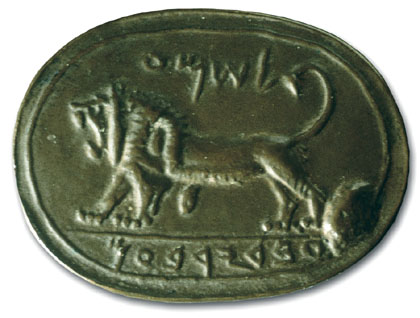|
Divided Monarchy
The end of Solomon's rule was marred by discontent on the part of the populace, which had to pay heavily for his ambitious schemes. At the same time, preferential treatment of his own tribe embittered the others, which resulted in growing antagonism between the monarchy and the tribal separatists.
After Solomon’s death (930 BCE), open insurrection led to the breaking away of the 10 northern tribes and division of the country into a northern kingdom, Israel, and a southern kingdom, Judah, the latter on the territory of the tribes of Judah and Benjamin.
The Kingdom of Israel, with its capital Samaria, lasted more than 200 years under 19 kings, while the Kingdom of Judah was ruled from Jerusalem for 400 years by an equal number of kings of the lineage of David. The expansion of the Assyrian and Babylonian empires brought first Israel and later Judah under foreign control.
The Kingdom of Israel was crushed by the Assyrians (722 BCE) and its people carried off into exile and oblivion. Over a hundred years later, Babylonia conquered the Kingdom of Judah, exiling most of its inhabitants as well as destroying Jerusalem and the Temple (586 BCE).

Seal bearing the inscription to Shema, servant of Jeroboam, from Megiddo (Israel Antiquities Authority)
|